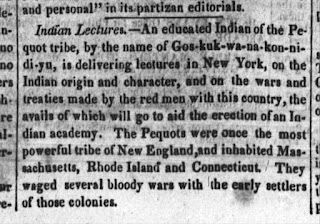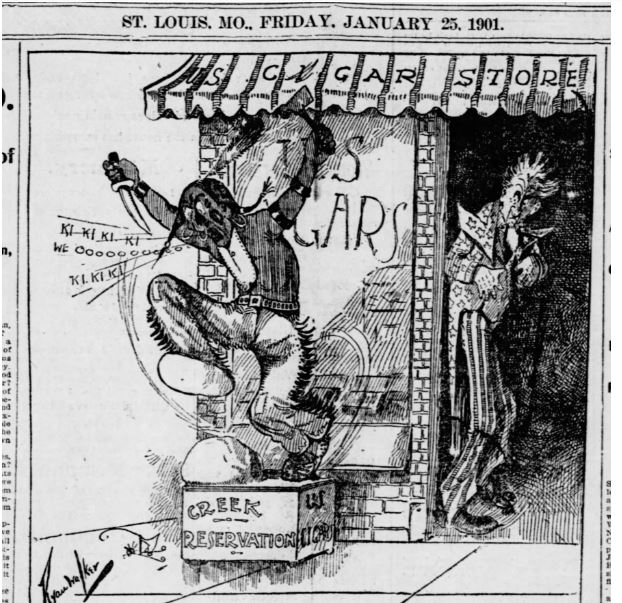Feb 28, 1837: We have seen an estimate in the Eastern papers, from which it appears, that the business of killing Indians in the South during this last year will cost the US not less than $15,000.000.

Indian Lectures - an educated Indian of the Pequot tribe, by the name of Gos-kuk-wa-na-kon-ni-di-yu, is delivering lectures in Ne York, on the Indian origin and character, and on the wars and treaties made by the red men with this country, the avails of which will go to aid the erection of an Indian academy. The Pequots were once the most powerful tribe of New England, and inhabited Massachusetts, Rhode Island and Connecticut. They waged several bloody wars with the early settlers of those colonies. 1837 Feb 24, Public Ledger We have seen an estimate in the Eastern papers, from which it appears, that the business of killing Indians in the South during this last year will cost the US not less than $15,000.000. [What cost $15,000,000. in 1837 would cost $329,841,781.00 in 2017] 1837 Feb 28, The Courier Journal















